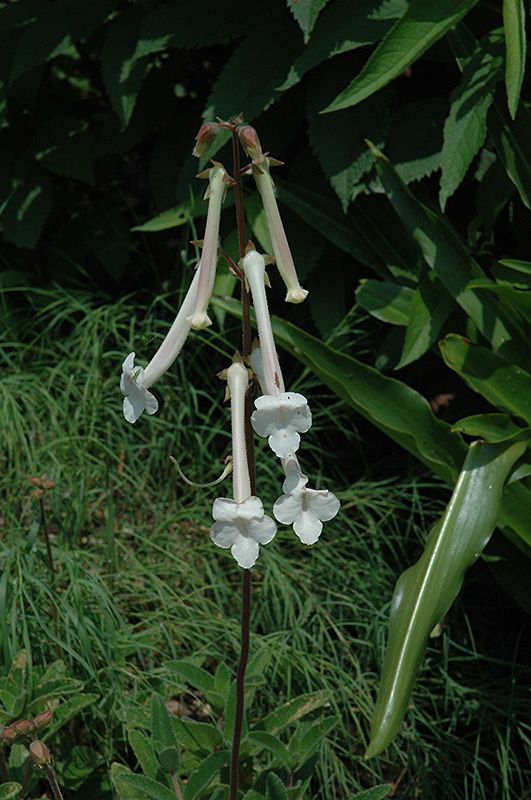Plant Height: 12 inches
Flower Height: 24 inches
Spread: 3 feet
Sunlight:
![]()
![]()
Hardiness Zone: 8
Description:
A beautiful and easy to grow tuber that produces a mound of long fuzzy gray-green leaves and spikes of dainty white flowers in early summer; tolerant of wide conditions, and can be used in xeriscaping; also beautiful in containers
Ornamental Features
Hardy White Gloxinia features dainty spikes of white tubular flowers with shell pink throats dangling from the stems from late spring to mid summer. Its tomentose narrow leaves remain grayish green in colour throughout the season.
Landscape Attributes
Hardy White Gloxinia is an herbaceous perennial with tall flower stalks held atop a low mound of foliage. Its medium texture blends into the garden, but can always be balanced by a couple of finer or coarser plants for an effective composition.
This is a relatively low maintenance plant, and should be cut back in late fall in preparation for winter. It has no significant negative characteristics.
Hardy White Gloxinia is recommended for the following landscape applications;
- Accent
- Mass Planting
- Rock/Alpine Gardens
- General Garden Use
Planting & Growing
Hardy White Gloxinia will grow to be about 12 inches tall at maturity extending to 24 inches tall with the flowers, with a spread of 3 feet. It grows at a fast rate, and under ideal conditions can be expected to live for approximately 5 years. As an herbaceous perennial, this plant will usually die back to the crown each winter, and will regrow from the base each spring. Be careful not to disturb the crown in late winter when it may not be readily seen!
This plant does best in full sun to partial shade. It is very adaptable to both dry and moist growing conditions, but will not tolerate any standing water. It is considered to be drought-tolerant, and thus makes an ideal choice for a low-water garden or xeriscape application. It is not particular as to soil type or pH. It is somewhat tolerant of urban pollution. This species is not originally from North America. It can be propagated by division.

